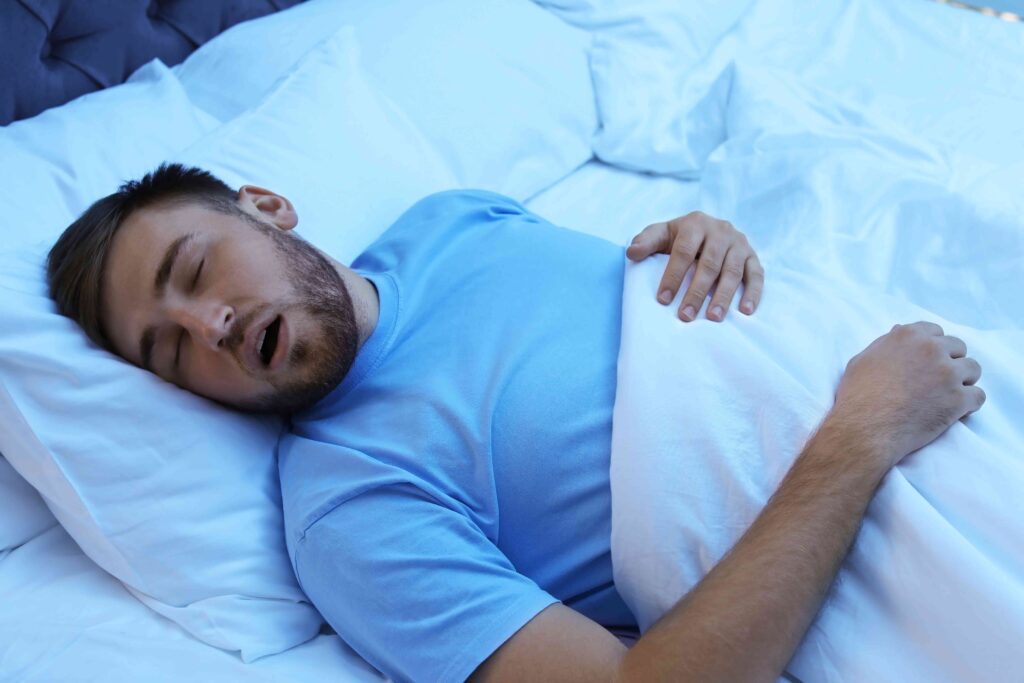
Obstructive sleep apnea is a common sleep disorder that effects approximately 30 million Americans. This can result in various negative consequences, like loud snoring, fatigue, and difficulty focusing on tasks during the day. Sleep apnea can also increase your risk of other health conditions throughout the body, including those that lead to vision loss. Continue reading to learn more about this connection and what you can do.
What’s the Link Between Sleep Apnea and Vision Problems?
Sleep and your vision may not seem like they have a lot in common. However, there is a connection between sleep apnea and a condition known as “diabetic retinopathy.” Someone with this condition experiences damage to their blood vessels in their eyes. When left untreated, this can result in a condition called macular edema, which consists of fluid buildup in the retina. This can cause serious damage to your eyes and result in vision loss over time! This condition can affect anyone, but it is much more common in those who have diabetes.
Over half of people who have type two diabetes experience obstructive sleep apnea. Ultimately, sleep apnea could trigger a chair of events that can lead to diabetic retinopathy in diabetic people. The sooner you seek treatment, the more likely that you can keep your body, including your eyes, healthy!
How Is Sleep Apnea Addressed?
Getting quality sleep every night is necessary for your body to thrive. If you aren’t getting the rest that you need, the different systems throughout your body suffer. Here are some of the steps you should take if you are experiencing symptoms of sleep apnea.
- Seek a Diagnosis: To be treated for sleep apnea, you need to receive a diagnosis. To get a diagnosis, you need to undergo a sleep test. Then, it will be confirmed if sleep apnea is the cause of your symptoms.
- Undergo Treatment: After you’ve received your diagnosis, steps can be taken to relieve your symptoms. There are a variety of options available to treat sleep apnea. CPAP therapy is common and works well for some patients, but others find it uncomfortable and impractical. Oral appliance therapy is an excellent alternative solution. By working with your sleep dentist, you can put together a plan that meets your needs.
- Lifestyle Changes: Maintaining a healthy diet and getting plenty of exercise can help to reduce sleep apnea symptoms.
If you think you might have sleep apnea, you should seek help from your dentist. By getting the bottom of your symptoms, you can work to get the quality sleep you need to thrive during the day.
About the Practice
At OS Dental, Dr. Byron McKnight and Dr. Olga Stepanchenko work together to treat patients in the Mesquite community with their combined experience and expertise, patients can get pretty much anything they need under one roof. To learn more about sleep apnea or to schedule an appointment, visit their website or call (469) 829-4328.